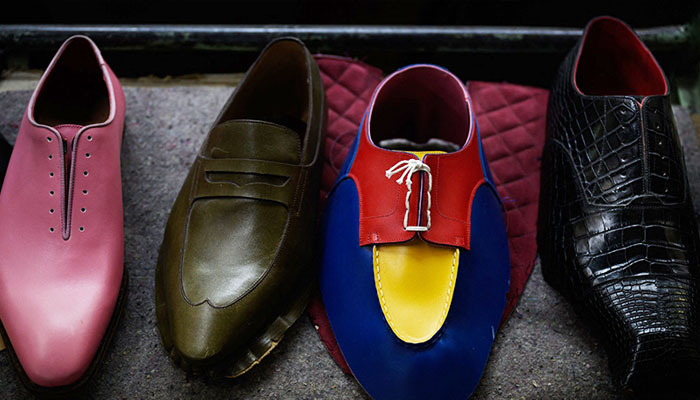Should you leave your shoes outside before entering someone's house?
Many people are wondering if to ask their guests to leave shoes outside before entering their house
Many people's calendars are filled with at-home Christmas parties right now, and germ-conscious hosts are presented with a quandary: Should I demand my visitors to remove their shoes at the entrance, especially if the event is cocktail or formal wear — if the guest is a sophisticated shoeaholic like Carrie Bradshaw?
Carrie (Sarah Jessica Parker) is requested to leave her $485 Manolo Blahnik shoes at the door during a New York City baby shower thrown by her friend Kyra (Tatum O'Neal) in a 2003 "Sex and the City" episode, only to discover they have been stolen.
“I hadn’t even done a full lap around the party,” Carrie lamented later at a lunch with her friends. The iconic TV character had been forced to walk home in her party dress and old gray sneakers lent by her host.
“Why in the h*ll did you take off your shoes to begin with?” asked Carrie’s friend Samantha Jones (Kim Cattrall).
“We had to!” Carrie explained. “For their kids — apparently we drag things in on our heels that make children sick.”
While the episode, "A Woman's Right to Shoes," was intended to discuss dilemmas faced by single people in a world dominated by families with children, the underlying question — and debate — about footwear and health remains: Is there significant evidence that going shoeless prevents the spread of germs in the home?
"Absolutely," said Gabriel Filippelli, chancellor's professor of Earth sciences at Indiana University-Purdue University Indianapolis and executive director of the Environmental Resilience Institute at Indiana University.
“We can track in all sorts of bacteria, but certainly some of the ones we’re most concerned about are E coli that cause severe abdominal cramps, bloody diarrhea and vomiting,” he said. “There’s been studies that swab the bottom of shoes and something like 99% of the shoes test positive for fecal material.”
However, bacteria aren't the only danger lurking in the dust and dirt that surrounds rural and urban homes, gardens, and parks, according to Jill Litt, a professor of environmental studies at the University of Colorado in Boulder who is also a senior researcher at the Barcelona Institute for Global Health, or ISGlobal, in Spain.
“Studies have shown that in urban areas where there are older homes, lead in dust can be tracked into the home on the surface of shoes,” she said. “Other studies have shown that you can bring in pesticide residues from gardens via shoes.”
Heavy metals like lead, copper and zinc permeate the soils of urban parks and streets from decades of pollutants, while pesticide levels can be high in rural agricultural areas, Litt added.
According to experts, homes built before 1978 are extremely likely to contain lead-based paint, which may chip, flake, and disintegrate into deadly dust. There is no such thing as a safe dose of lead at any age, but children are particularly exposed to the harmful effects of heavy metals and pesticides due to their tiny stature and closeness to pollutants as they crawl, roll, and play on the floors of the house.
-
Ryan Coogler shares thoughts about building community of actors amid 'Sinners' success
-
Heidi Klum gushes over Diplo collab 'Red Eye' despite DJ falling asleep during video
-
Israel behind majority of journalist deaths worldwide, watchdog claims
-
Former Sri Lankan intelligence chief arrested over 2019 Easter bombings
-
Mexico’s president considers legal action over Elon Musk cartel remark
-
Donnie Wahlberg responds to 'Boston Blue' backlash: 'Nobody was more disappointed than me'
-
Iran 'set to buy' Chinese carrier-killer missiles as US forces gather in region
-
Savannah Guthrie's fans receive disappointing news












